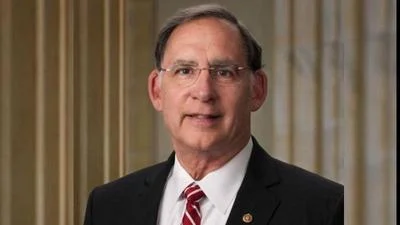WASHINGTON - Today, the Ways and Means Health Subcommittee heard testimony on approaches to reforming the Medicare physician payment system. Witnesses: Stuart Guterman, Vice President, Payment and System Reform at The Commonwealth Fund; Dana Safran, senior Vice President, Blue Cross Blue Shield of Massachusetts; Lisa Dulsky Watkins, MD, Associate Director, Vermont Blueprint for Health; Keith Wilson, MD, Chair of the Executive Committee at the California Association of Physician Groups (CAPG).
Opening statement of Rep. Pete Stark (D-CA),
Ranking Member of the Ways and Means Health Subcommittee,
as prepared for delivery:
I want to start by thanking Chairman Herger and his staff for working collaboratively with us to put together this first hearing on SGR reform. Reforming the Medicare physician payment system is not a partisan issue. It’s a problem that’s been around for more than a decade and, speaking frankly, neither party has been able to enact a permanent solution.
That said it’s not that Democrats haven’t tried. Last year, the House passed a permanent reform of the SGR system that would have gotten us out of this annual kick-the-can approach. Our legislation would have essentially reset the existing system and started over with a formula that divided physicians into two groups: primary care (including preventive services) and specialty care, with different expenditure targets for each. While all physicians would still be accountable for spending growth, access to primary care services would have been promoted by getting an extra growth allowance. That legislation also encouraged doctors to join together in accountable care organizations by letting these organizations “opt out" of the national spending targets and put themselves under their own individual expenditure targets.
Unfortunately, only one member on the Republican side of the aisle - Dr. Michael Burgess - was willing to join with us in support of that legislation which was endorsed by virtually the entire physician community. The Senate was unable to act. So, we are back this year facing this same issue yet again.
Today’s hearing is focusing on a key component of a reformed physician payment system -- delivery system reform. As I think we’ll hear the witnesses say today, we have no chance of reforming physician payment until we change the way we pay for medical care to better encourage the efficient delivery of high quality care. The existing fee-for-service system merely incentivizes the provision of additional care. Until we can change that - and it’s clear a blunt formula like SGR didn’t do so - we will face this same problem.
Our witnesses today provide great examples of the experimentation going on across our country to develop new payment systems. I’m very interested to hear what they’re doing and how it is improving the quality of care they provide, as well as how it is affecting their bottom lines.
I’m also interested to hear how the passage of health reform is helping them move forward with these new ideas. Despite ongoing attempts by my Republican colleagues to repeal health reform, I think we’ll hear today that the Affordable Care Act is a key driver toward developing these new delivery systems. The new law is packed with provisions that encourage better integration of care, by testing new models such as bundled payments, medical homes, and accountable care organizations. The new Center for Medicare and Medicaid Innovation, enacted as part of health reform, will also help us to make great strides in this area by providing $10 billion in new funds for providers willing to test new delivery system models designed to lower costs and improve quality. If these new ideas work, CMS is empowered to implement many of them more broadly - without needing to come back to Congress to pass new laws to do so.
While I note a bit of cognitive dissonance here today from my colleagues on the other side of the aisle, I thank them for putting aside their repeal efforts for the moment so we can learn about innovations in the delivery system of health care that are already underway, many as a result of the Affordable Care Act. As long as we have a Democratic Senate and President Obama in office, I don’t think their ongoing efforts to blindly repeal key components of health reform stand much chance. If we are able to work together to reform the Medicare physician payment system this year, we’ll have defied the odds and fixed a long-standing problem with bipartisan support. We can then deal with the repeal sideshow along the way.
Now, I thank your witnesses for joining us today and look forward to their testimony and our discussion to follow.





